How Ibrahim Mahama went from college dropout to billionaire entrepreneur
You don't always need an Ivy League education to become a billionaire. As a teenager, Ibrahim Mahama never imagined he would be where he is today.
“God has been good to me,” said Mahama.
“It is all about focus, honesty, no time for foolishness and empty talk. I started life as a 26-year- old returnee from the United Kingdom who dropped out of college after my third year and realized school was not for me and began to think of what to do next”.
Beyond the classroom, young Mahama had a passion for machines and technology, and has today turned those passions into a far-reaching business empire. He wanted to move beyond the rise and fall of Ghanaian businessmen, where the business and wealth collapsed after the death of the vision bearer.
“I learned about how white people were successful and passed on to generation to generation and in there I noticed that playing with the earth was the real thing in life,” said Mahama.
Mahama, affectionately called Baba is a Ghanaian business tycoon and philanthropist who owns Engineers and Planners. A serial entrepreneur, Mahama has led an extraordinary life full of success and hardships. He has embraced his moments of triumphs and challenges, and with his indefatigable spirit, he has turned his failures into stepping stones for achievement and prosperity.
Mahama always had the entrepreneurial streak in him right from childhood and a knack for making money. He could eye an opportunity where others couldn’t and turn it into a successful business. The iconic Sankara Circle was one of his earliest jobs.
Eventually, his efforts at mining led him to establish other companies. Today, at the age of 50, he is going strong and continues to expand his more than 20-year long legacy.
What began as a small venture steered Mahama down an unexpected path to success. In 1997 he founded Engineers and Planners, a small rental company that has today grown by leaps and bounds to become one of the largest mining contractors in West Africa with over 3000 workers and an asset value of over 100 million US dollars.
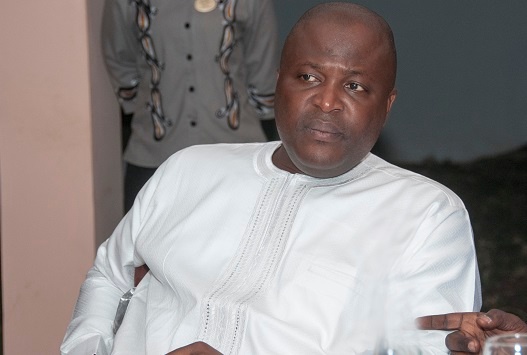
His Early years
Ibrahim Mahama was born on January 29, 1971, in Piase in the northern region of Ghana. His father, Emmanuel Adama Mahama, was the former Minister of Agriculture and the First Minister of the Northern Region under the Nkrumah regime. His mother, Joyce Tamakloe, a native of Keta in the Volta region was a businesswoman. He moved to the United Kingdom and studied at the College of North London. After college, he went on to live in London, where he worked for a property development company
After dropping out of school at 26 and realizing that his future was not in the classroom, he returned to Ghana. He discovered mining after reading and researching about minerals in Africa.
“I realized that playing with the earth was the most suitable thing to do,” said Mahama. “I studied and realized that for everything you use some of it would come from the earth that is the spoon you use, plates, glass, cooking utensils, all come from the earth”.
His curiosity led him to ask very deep and pertinent questions such as how white people become successful. And why Africa is poor despite the abundance of minerals such as bauxite, gold, coal, copper, and manganese.
“I discovered it was because we have not mastered the game of extraction,” said Mahama
Ibrahim in his early days seeking counsel with his friend, Ex-Nigerian President Olusegun Obasanjo
This was what inspired him into mining.” So he went abroad, and his brother guaranteed his property. Together they bought one bulldozer, started renting and making money.
“Before then a gentleman sent me an inquiry,” said Mahama. He wanted to rent a particular piece of equipment that was not in Ghana, so I asked him how much he would pay if he wanted to rent per hour and he said 200 dollars per hour
So straight away if you calculate 200 dollars times 20 hours’ that's 4000 dollars a day for one machine and if that machine works for let’s say even 20 days straight, I knew where I wanted to go. I saw that there was money in what Ghanaians never saw”.
My schooling on-site
Mahama’s quest for knowledge and insight into the mines was just getting started. He was determined to learn the art of mining and sacrificed his time to live on a mine site
“I found one Australian who had divorced his wife and was always alone.so I pitched camp with him for breakfast, lunch, and supper” said Mahama. We sat, drank, and went to sleep and that was me learning from him. He taught me things that the school of mines didn't even teach its students.
Before that, the young 26 years old could not afford a car, all he could afford was a motorcycle.

“Anytime I started my paperwork, wore my shirt and went to offices to tell them what I wanted to do, some listened and others didn't but that didn’t deter me”, said Mahama. If it did I would have given up the business”. Now I had to travel to Tarkwa. I didn't have a car, what I had was a motorcycle and I said ok, I used to do this when I was young. I did it once, twice, three times and it paid off”.
After a few jobs at the mines, Mahama could buy a bulldozer.” So there was a young man called Motoyo and someone just introduced him to me” said Mahama. He said he was selling a land cruiser and I asked how much he said 60,000 dollars. I said I didn't have that much money and that I would give him 10,000 dollars and pay the rest later. But because of my demeanour to him, he had confidence in me and gave the car to me on credit”.
One of Ibrahim’s first major Jobs
After a few jobs Mahama was able to buy five machines and in no time bids had been opened for construction of the Sankara Circle.
“If you look from the flagstaff house all the way to Movenpick you see Sankara circle, that was one of my first jobs,” said Mahama. I went to see the French company at a time when there were bigger contractors.
“You remember Bilfinger, Taysec, Consar, and all those big companies but I didn't even have a wheelbarrow. They asked can you deliver, I said yes. They said we need 20 trucks, I said don't worry”.
The determined young Mahama immediately jumped on his motorcycle and went to a friend in Tema. He told him of his desire to execute the contract.” His friend looked at him and said “Paddy you’re not going to get the job so don't come waste my time”. And Mahama said, “Paddy I get the job”.
So Mahama’s friend gave him the trucks with the condition that his sticker would be replaced with that of Mahama’s. His friend did not have a problem with it, so Mahama stuck his sticker on the trucks
“The next morning the French man came in and saw 20 brand new trucks parked in there”, said Mahama. He said “Mon ami, c'est bon!”.And at this time I had motivated the drivers because I needed to do 25 trips a day and if I did only 15 trips I would have paid for the trucks and the rest will be my profits”.
The worker who makes you money
Mahama always had a cordial relationship with anyone he came into contact with including his workers. He believed that every person deserved to be respected regardless of his or her social class
“The worker who works for you or drives your truck is the one who makes you money, you have to respect him,” said Mahama. So at this point for every 25 or 26 trips, you do one trip will be yours. That's how you do the profit sharing. From that job, I became profitable and went into the mines and never came back”.
The experience of Mining
In his over 20 years of mining, Mahama has not only supervised but also applied himself to studying and learning about the rudiments of mining
“In mining, you have to learn a lot,” said Mahama. I studied about reclamation. I have stayed in the mines for 25 years and that's where all my successes have come from. You have to learn how to drill, how to tailings down to restore all the wastewater processed into the dam, topsoil strip, store the topsoil such that when you finish mining you can come and reclaim. All these were taught to me by the Australian man”.
Bringing the best together
Mahama despite his limited academic background currently employs some of the brightest and most qualified artisans. He has managed to assemble some of the best engineers and mining experts from across Europe and the world because of his belief in excellence. He is successful because he has such a good and close relationship with his employees. One of his exceptional qualities is his ability to influence others positively
No sooner did his Australian friend, a man he calls his mentor, inform him of his intentions to leave Ghana. Hard as it seemed, this did not deter Mahama from moving forward and seeking the opportunities being pursued by his friend.
“That is when I started bringing the best together,” said Mahama. In class, there is always that one, two, or three students that are clever. When you are leaving school you take their numbers and keep in touch with them. What this means is that if you don't know and they know, never be shy to say you don't know. When I don’t know I go and look for people who know to be able to teach me what I don't know and it's not a sin to tell somebody that you know better than me and I use the people who know better than me to make money”.
Mahama never shied away from learning from the best. He said “I would give them everything I have to work with them to give me the support to be able to shine. And when I go out there, what he has taught me is what I am applying out there, and the people who taught continue teaching me”.
“The first man who taught me I spoke to him and asked him to come back, and through all that ENP has become the biggest mining contractor in West Africa, using local Ghanaians,” said Mahama
Failures along the Way
Mahama has had his fair share of failures and disappointments. Just like everyone he is not a perfect man. He has particularly suffered political persecution which mainly began after his brother, John became Vice President. However, as much as his detractors have tried to ruin his reputation, in secret, they have not hidden their admiration of his courage and business acumen.
He has struggled in other business ventures but through it all, he has stood tall and sailed through unblemished. For instance, his 6 million dollar investment into Poultry in 2001 did not yield much because successive governments failed to protect local farmers and continue to expose them to cheap imports and dumping of poultry and poultry products. In 2017, Mahama encountered an even bigger problem; his attempts to mine bauxite after grounds work and feasibility studies was thwarted by the government over failure to seek parliamentary approval. In the end though, he does not see failure as a bad thing.
” Failure is a nice way of learning,” Mahama said. “As an entrepreneur, if you're not taking risks, you’re not going to achieve anything”.
Success in the Midst of Trials
Who would have thought that in the midst of his trials and tribulations, Mahama would strike one of the juiciest contracts in the history of a Ghanaian mining firm? In 2017 he won the contract to manage the Goldfields Mine belonging to South African Gold Mining firm over a ten-year period.
“Things were tough at the time and I thought I wouldn't make it,” said Mahama. Everywhere you went you became like a plague and people didn't want to associate with you”.
Today Mahama’s company is executing the single biggest mining contract ever to be awarded to a West African contractor at the Tarkwa and Damang concession of Goldfields. The two contracts are worth over 2 billion US dollars.
His company Engineers and Planners is on record to have built one of the largest tailings dam in West Africa for South Africa Gold mining firm, Goldfields at their Tarkwa mining site. He also worked for the Canadian mining firm, Golden Star Resources at Mpohor in the Western region of Ghana. He was the first to open the Liberian economy to commercial mining activities after over two decades of civil war when it won the contract to mine the iron ore concession for Arcelor Mittal in Yekepa. In 2018 he was awarded the African Industrialist of the Year at the African Achievers' Award in London.
Aside from setting up and heading one of the biggest and most successful mining firms in Africa, Engineers, and Planners, Mahama has found time to work on some other things. He owns Hallman Brothers, Asutsuare Farms, MBG Ltd, real estate, and the soon to be out doored Dzata Cement.
“We have had a cement company in Ghana for 50 years and they have held a monopoly and no single local Ghanaian has been able to start it,” said Mahama. We only had Dangote come in to tell us that it is possible and he did it and after Dangote did it I said I would also do it and I have started”.
Mahama is the first Ghanaian to purchase a private jet and also the first Ghanaian to own a cement factory

Ibrahim the Philanthropist
Mahama’s amazing journey is not just about creating wealth, but also contributing to worthy causes. He has made a fortune through hard work and perseverance. But with his billionaire status, Mahama doesn't just spend luxuriously, he believes in giving back to society. He started his first charity many years ago. He has been a regular philanthropist to educational charities. Following the loss of his mother to cancer, Mahama championed charity causes that create awareness on different types of cancer. She was a big inspiration in his life
“My mother had a prayer room and we could recite every verse in the Bible. She was our pillar of support in terms of prayer “says Mahama who spoke fondly of his Mother in testimony at the Grace Chapel International at Mataheko.
He also co-founded the Joyce-Tamakloe Foundation which has raised funds for several hospitals in Ghana as a contribution to the fight against cancer. The Foundation has provided free mammograms for over 1000 women across Ghana.
Mahama's journey to this point has been rough and patchy, but he has stuck to his beliefs and never given up. Though he is in a completely different place than he used to be, he hasn't forgotten his roots. Occasionally he hangs out with old friends and shares his fortune with those who need it most.



.png)

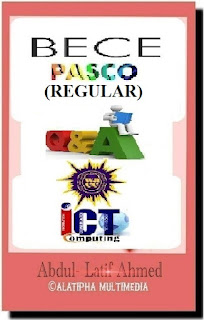




















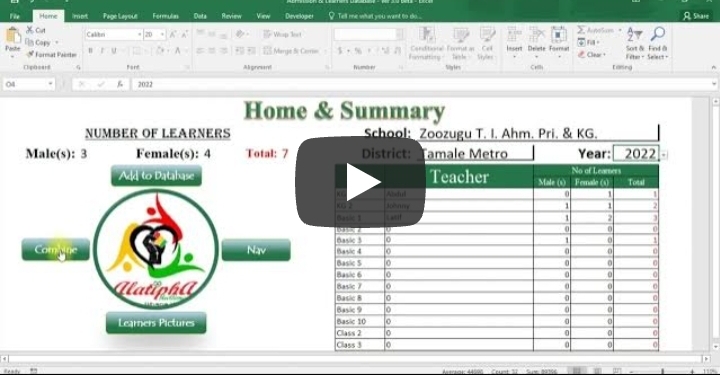
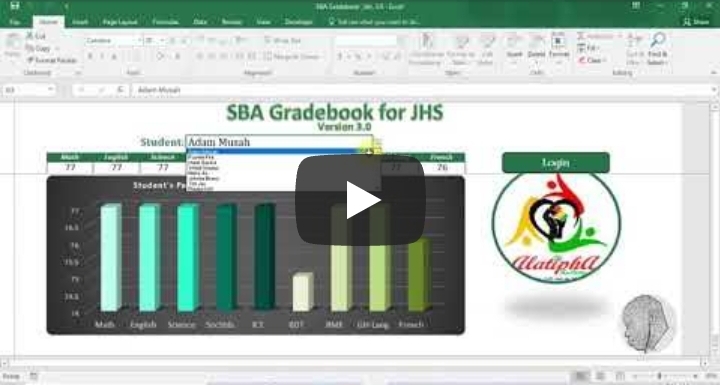
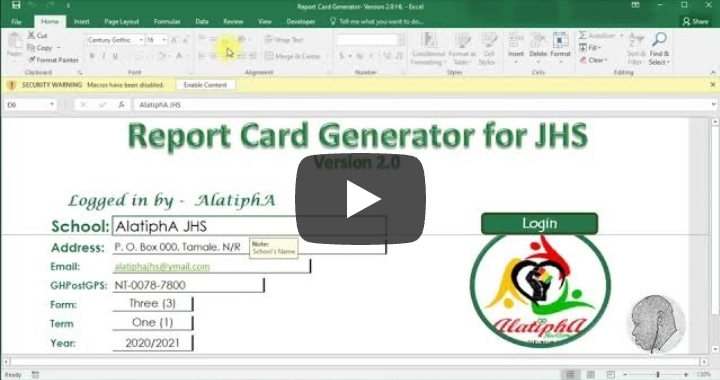
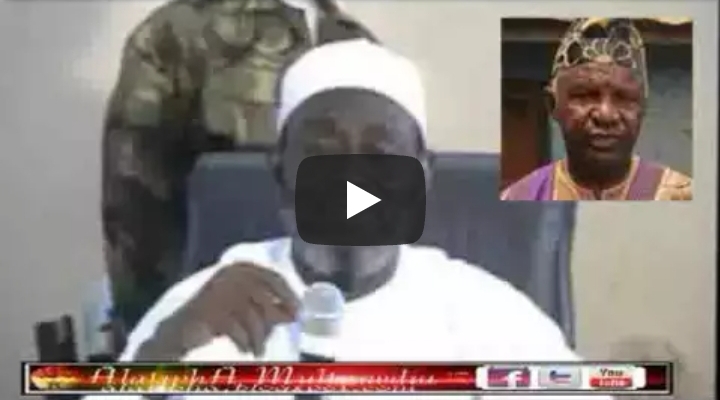
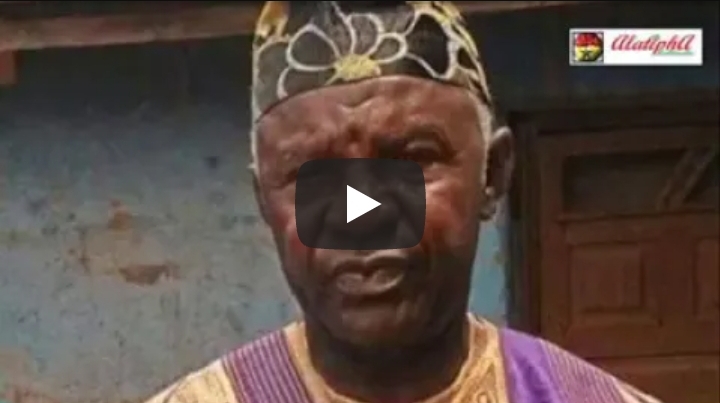
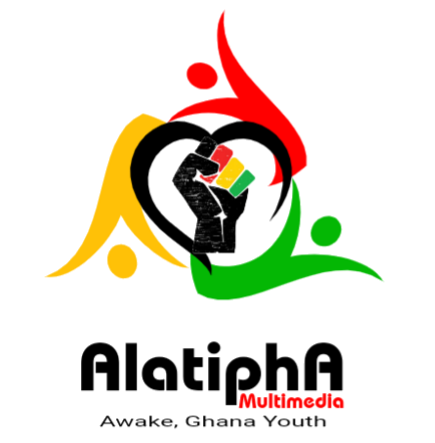
Comments
Post a Comment